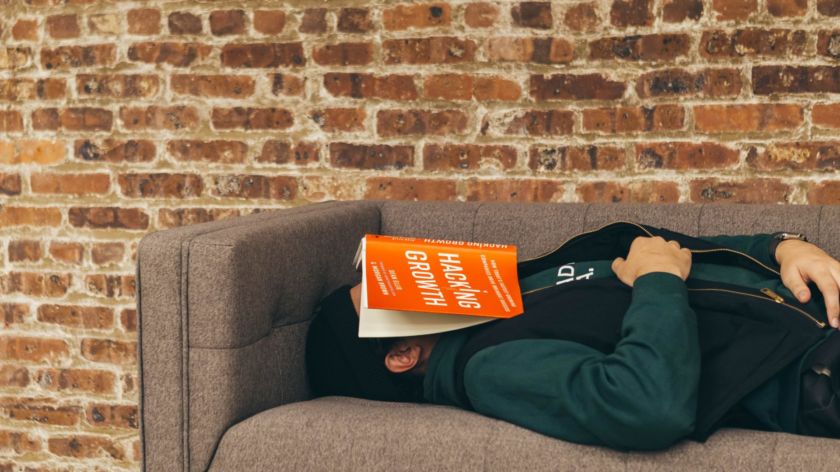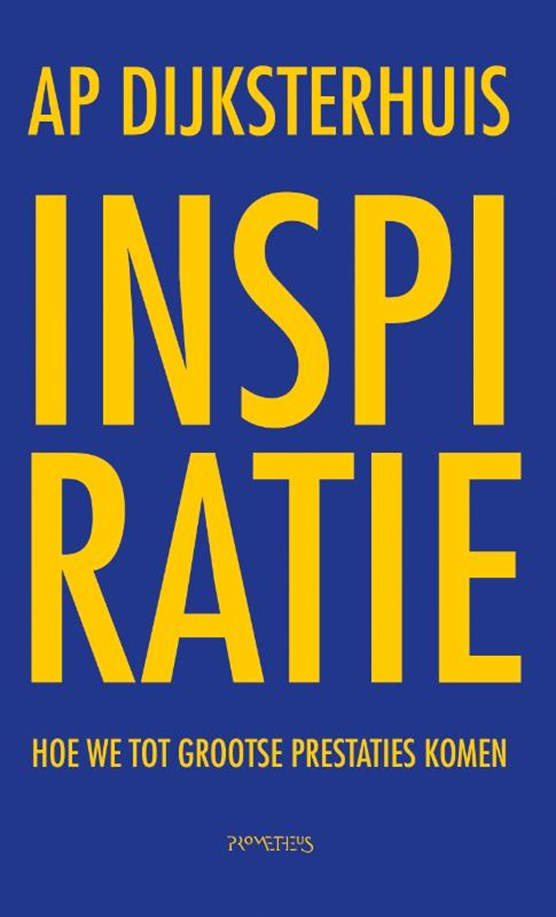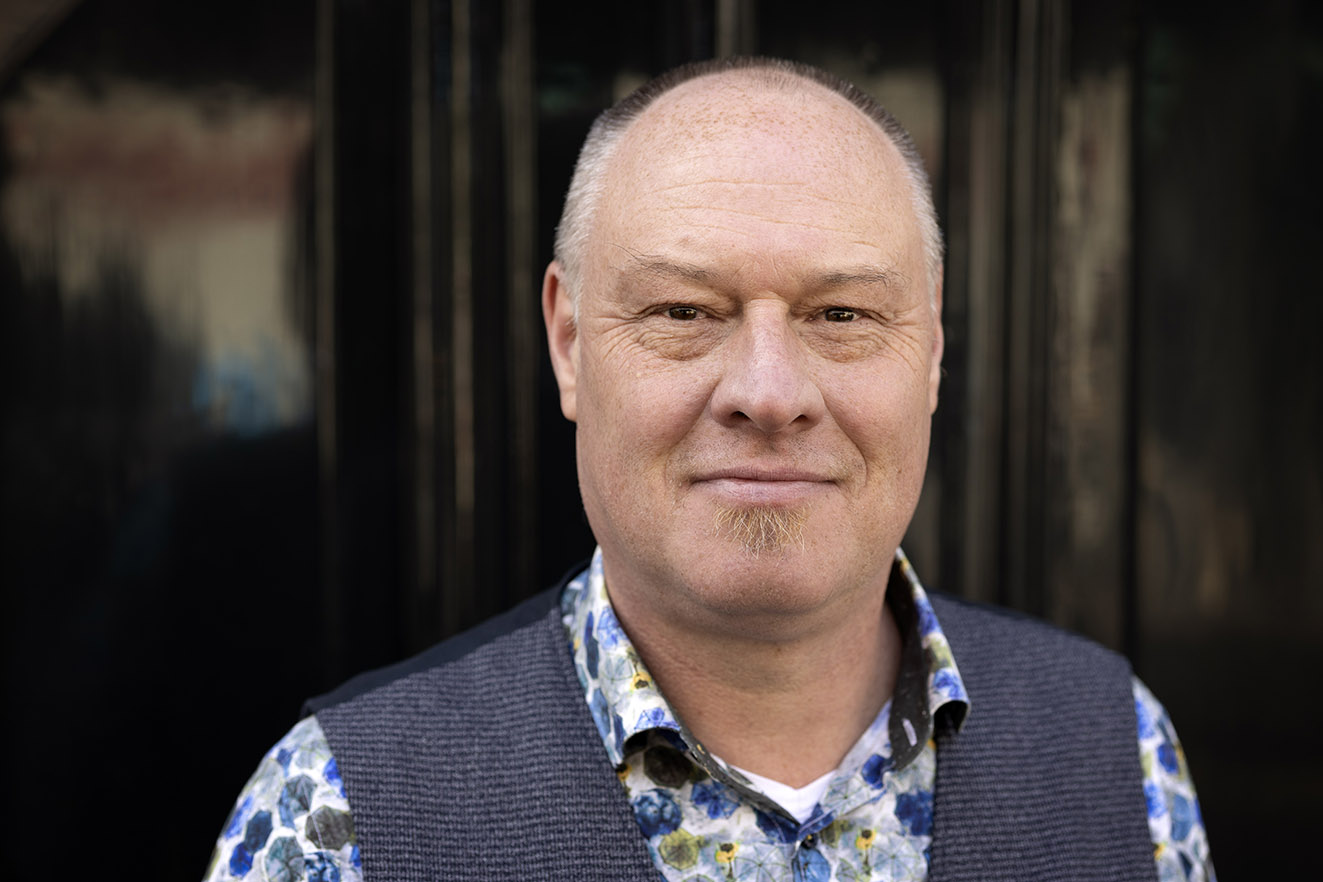-
 Foto ter illustratie. Via Unsplash
Foto ter illustratie. Via Unsplash
What subconscious processes lead to great achievements? That question is the focus of ‘Inspiratie’, a new popular science book by Ap Dijksterhuis, professor of Psychology. ‘Without inspiration we might have still been living in the jungle.’
It happened at a science conference. During a talk by a colleague, Ap Dijksterhuis suddenly had a flash of insight into his research agenda for the next three years. After retreating to his hotel room for a few hours, he put everything down on paper.
Artists are likely familiar with this happening, for example when they’re on the bus or in the bath, or when they can’t sleep at night because the wheels in their heads keep turning. Those moments often lead to an idea for a new book, painting, or sculpture.
Those processes, that spring from the human brain and lead to great achievements, are the subject of ‘Inspiratie’, Ap Dijksterhuis’s ninth book, which was released today by publisher Prometheus. ‘Inspiration is a representation of your subconscious processes, your innermost desires and motives that lovingly but firmly tell you what to do’, Dijksterhuis says in a meeting hall on the Radboud University campus.
Calling
As part of the creation process of Inspiratie, Dijksterhuis read some 150 academic articles, as well as around 200 biographies from such giants as Isaac Newton, Mahatma Gandhi and Wolfgang Amadeus Mozart. In order to get close to the heart of what inspiration means, he also interviewed author Ilja Leonard Pfeijffer, swimmer Pieter van den Hoogeband, athlete Lieke Klaver, and Emile van der Staak, head chef of the two-star restaurant De Nieuwe Winkel in Nijmegen.
Dijksterhuis, who has previously researched subconscious processes, makes a distinction in his book between three different kinds of inspiration. ‘The first kind is finding your calling, your vocation. How do you find out what you’re supposed to do in life? Sometimes that happens all at once, sometimes it takes a few more steps, and some people never figure it out.’
The second kind is the above-mentioned flash of inspiration, and the third kind comes up when doing research, writing or painting. Dijksterhuis: ‘Those moments raise a torrent of subconscious questions.’
Is inspiration enough to achieve great things?
‘Every breakthrough in art and science is at least partly due to people feeling inspired. I think we need to flip that question on its head: can we achieve great things without inspiration? Without inspiration we might have still been living in the jungle like apes.’
It is often said that writing a novel or composing a song is more successful when under the influence.
‘I used to think so too; that inspiration is reserved for a chosen few, who must wait for it to strike, potentially aided by drugs or alcohol. But now I think it is reserved for all of us, but it requires a lot of effort.’
In your book, you write ‘inspiration is transpiration’.
‘People who don’t have creative-minded jobs often wish me lots of inspiration when I mention that I’m writing a book. But people who do have creative jobs often hate that term. I personally think that both ideas have merit. Inspiration is a reward for your efforts and the discipline and focus that precede it.’
How can you optimise your chances of getting a ‘eureka’ moment?
‘By wanting something very badly. If you want to solve a scientific issue, then you have to think on it as often as possible, read about it and discuss it; you need to submerge yourself in it completely.’
‘You can never force inspiration’
‘You need to give your brain a shake-up by wondering and keeping an open mind, for example by travelling abroad or visiting a theatre. And there’s an incubation period: you need to allow your brain time to work. You can never force it. People used to say that moments of inspiration often happen in bed, bus, or bath. Usually in the morning when you’re still half asleep, or during a walk. At those times the subconscious mind can present whatever it wants.’
And how can you explain that?
‘Your subconscious is always thinking about things that matter to you, even when your conscious mind is otherwise engaged. When you’re working on a book, the process will raise ideas, which in turn influence your book. Your subconscious likes to be motivated, so that’s where it often starts. That leads to you doing research, which creates all manner of impressions. At some point you have so many impressions that ideas simply spring forth.’
Does inspiration work differently in art than inspiration in science?
‘There are more similarities than there are differences. The calling happens in a similar manner in most domains. You are called – from a relatively young age, sometimes – to science, or art, or gastronomy. Sometimes it feels like the question picks you, rather than the other way around.’
‘Sometimes it feels like the question picks you, rather than the other way around.’
‘Gaining insight is very comparable. For example, while on the train between Manchester and London, J.K. Rowling envisioned a whole plot, along with characters, enough to work on Harry Potter for the following fifteen years. It is the same for a researcher who establishes a research agenda in one go. If you’re deep in thought about something, you work on it out of love for the idea. The more love you can bring to bear, the bigger the odds are for getting inspired.’

Did you write this book with a certain audience in mind?
‘Not really, no. I wanted to write about inspiration, because I felt that I finally grasped how it worked. It is my hope that people who are not very involved with creative endeavours enjoy it nevertheless (and maybe become inspired), while people who are working in a creative field see themselves reflected.’
Could you read Inspiratie as a kind of self-help book?
‘I’ve heard that question before. As a serious scientist, that term is startling at first. But I do get where the question comes from. I describe all manner of things you can do to increase the odds of feeling inspired, without requiring the reader to check things off a list. If, in so doing, I have inevitably created the ultimate self-help book, so be it.’ (laughs)
Who is Ap Dijksterhuis?
Besides being a scientist, Ap Dijksterhuis (1968) is mostly known as a writer of popular science books. His book Het Slimme Bewustzijn, a book on why thinking often doesn’t help to reach a decision, sold over 100,000 copies. Dijksterhuis also wrote about money, happiness, whine, whisky, and travelling. The summer of 2020 saw the release of his debut novel Bart. Besides that, Dijksterhuis has founded several companies. The professor in Psychology, writer and author can be found on campus one day a week.
Inspiratie by Ap Dijksterhuis was published by Prometheus. It is around 360 pages long and costs 25 euros.




